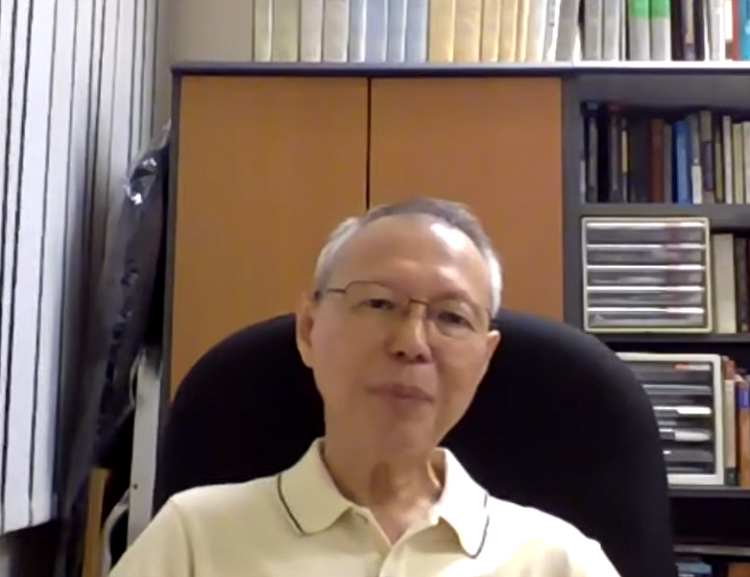On October 22, the Lausanne Theology Working Group hosted the first webinar of 'The Good News in a World of Fake News - Knowing the Story', starting a three-part webinar series to promote a biblical gospel and raise Christians’ awareness of distorted forms of the gospel.
Joined by over 120 participants from all over the world, the webinar panel included Simon Chan, editor of Asia Journal of Theology from Singapore, Jacob Cherian, Dean of Southern Asia Bible College of India, and Ligon Duncan, chancellor and CEO of Reformed Theological Seminary in the United States.
The moderator, Conrad Mbewe, pastor of Kabwata Baptist Church in Zambia, first invited the three panelists to share their observations of how clearly Christians understood the gospel.
“Polls repeatedly show that a lot of people who identify themselves as Bible-believing Christians in America actually do not understand the gospel”, said Ligon Duncan.
Jacob Cherian and Simon Chan further specified their observations of Indian and Singaporean Christians. “In my experience, the majority of them [Christians] know that Gospel has something to do with Jesus Christ... but for a lot of people, there is a biblical illiteracy”, said Cherian. Many people cared more about “what works for their needs” than “what the gospel is”.
Simon Chan concluded the problem he found was “sloganizing”.
“Gospel is usually reduced to a number of slogans. The gospel becomes good news that Jesus died for my sins on the cross, we are saved by grace not by works, I respond to the gospel by accepting Jesus as my personal savior... While all these slogans capture important truths about the gospel, they are clearly inadequate,” claimed Chan.
“Sloganizing the gospel was part of the problem why the gospel lacks clarity. Sloganizing gives people the vague sense that they know the truth, but they miss the full ramifications of it because they fail to see the gospel as a coherent story.”
Duncan agreed that the gospel must be understood under the frame of the whole Scripture. When asked how he would summarize the gospel, he emphasized that people, especially those of no Christian background, needed to be told the whole story - “God is our maker, sin is our failure, Christ is our Savior, faith is our answer, and new life is our pleasure.” He explained that when he articulated the gospel, he would tie these points to Bible stories so that listeners could see why the gospel was necessary.
In regards to the main false gospels that the panelists saw in their contexts, Chan shared that as a globalized city and a hub of communication and marketing, Singapore shared common false gospels seen in many other countries, particularly prosperity gospel and distorted teachings of prophecy, spiritual authority, signs, and miracles. Many of these teachings that originated from other countries easily made their way to Singapore, especially to the megachurches.
He attributed the popularity of these false teachings to three reasons: the attraction of success, the strong primal religious instinct in Singapore under its secular appearance, and the lack of a long-term memory of Christian identity among evangelical Christians. The last one, particularly, could explain why Christians would go after false prophets in spite of their repeated failures in prophecy.
“This Christian identity is more than about a Christian individual being shaped by the gospel story. It is about being part of a gospel-shaped community - the church. It is within the context of our life in this community that we discover our basic Christian identity, our sense of who we are as part of a larger body, enabling us to know who we really are,” he added.
“When we don’t remember that we are the people of God in a community shaped by the gospel, we cannot draw on the resources of our collective memory to assess our present challenges. That’s why we are easily drawn by fads, by what is current, and we become easy victims of all of these fashionable gospels.”
Duncan also warned listeners about two types of prevalent distorted gospels today.
“One is to see Jesus as a means to something else that’s greater than or more than, or in addition to Jesus. Any kind of theology of ‘plus’ - Jesus plus something else, and the something else is what you’re really after, whether it’s supernatural experiences or miraculous power - can actually end up clouding the gospel,” said Duncan. ‘Because there’s nothing better than Jesus. Communion with Christ is what we all want more than anything else.’
The other form of a false gospel, according to Duncan, was that “we find ways to say that what we do is the gospel, where the gospel becomes our care to the poor”.
He stated, “The gospel is an announcement, a message. It’s not something we do or be. If there’s anything clear in the gospel, it’s that we are not the gospel and we do not do the gospel. God does the gospel, and we get to announce that to other people.”
In terms of keeping away from false gospels, Cherian advised Christians to fully understand the four Gospels. He made an analogy that as he learned the features of real rupee notes, he could recognize the false ones. Similarly, as Christians get to truly know the four Gospels themselves, as well as the letters of Paul, they will be able to recapture the reality of the gospel.
“Knowing the Story” is the first webinar of the “The Good News in a World of Fake News Webinar Series”. The remaining two, “Being Shaped by the Story” was held on Nov 5 and “Telling the Story” is scheduled to be held on Nov 19.
The Lausanne Movement is a Christian organization that "connects influencers and ideas for global mission, with a vision of the gospel for every person, disciple-making churches for every people and place, Christ-like leaders for every church and sector, and kingdom impact in every sphere of society".












